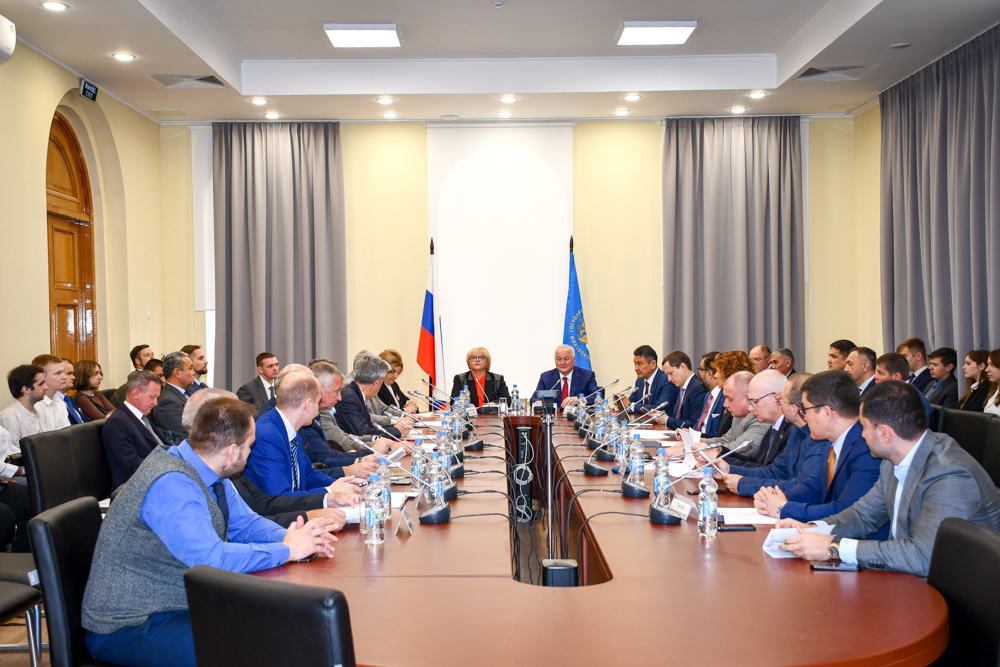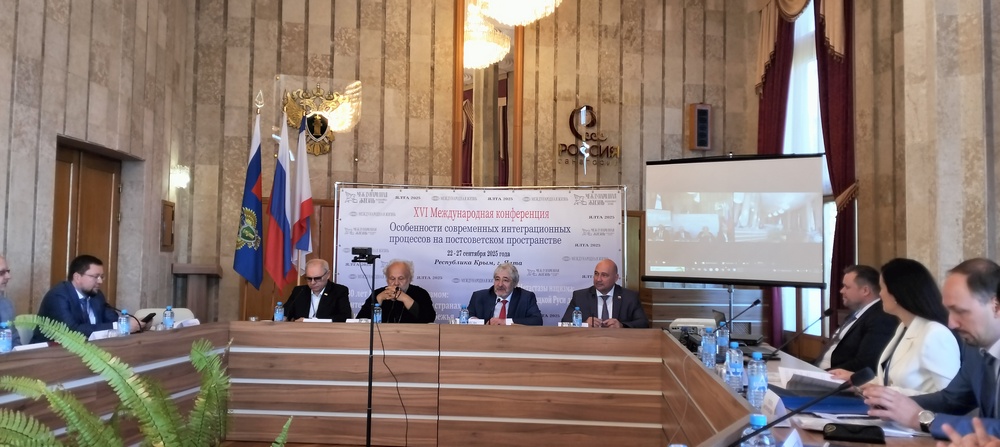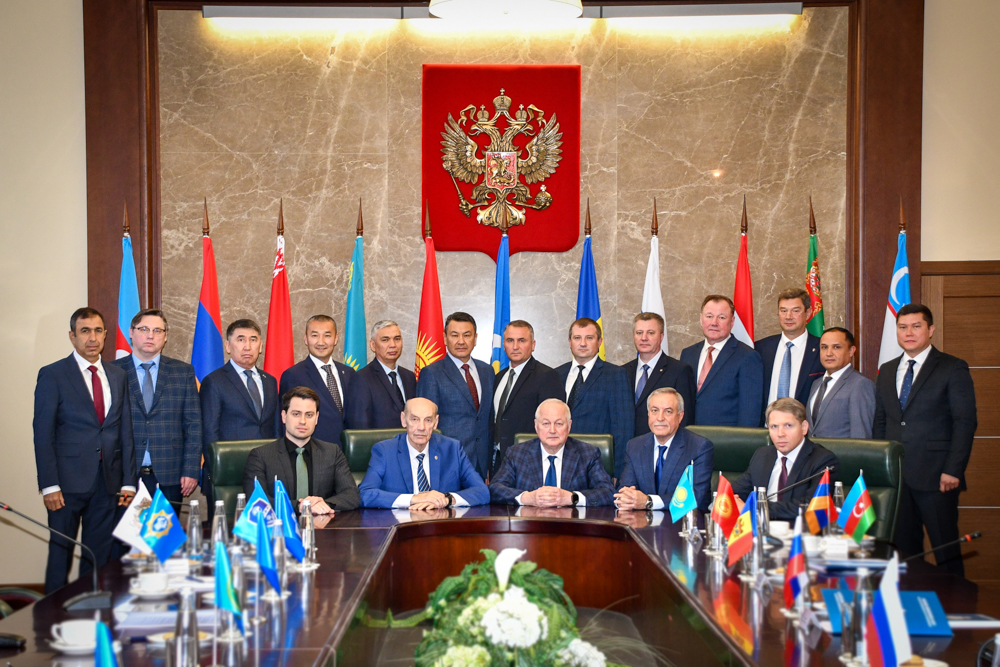October 27, 2023

The Commonwealth of Independent States Anti-Terrorism Center and Moscow State Linguistic University (MSLU) organized an international science-to-practice conference on “Strategic vectors of transit of post-Soviet states and geopolitical challenges to the CIS member-states: analysis and forecast” which was held on October 25-27, 2023 in Moscow.
The conference was aimed to popularize scientific researches in geopolitics and development of states of the post-Soviet area; countering terrorism and its narratives; to explore the role of international organizations in political processes, as well as to improve qualification of scientific and teaching staff.
The conference was opened by the CIS ATC’s Head Colonel General E. Sysoev and MSLU Rector Professor I. Kraeva.
In his opening remarks the CIS ATC’s Head assessed the situation in the counter-terrorism field, informed about 2.5 thousand terrorist attacks committed all over the world in 2023 and resulted in the death and injury of over 15 thousand people, as well as about significant rise in threats linked with inter-regional conflicts, risks of transfer of activity of international terrorist organizations to the post-Soviet territory.
E. Sysoev noted an increasing role of scientific support to the anti-terrorist activities in these circumstances, highlighted a necessity to utilize a practical base for scientific researches so that their results become practically oriented and to provide the competent authorities and civil society with efficient CT techniques.
The event included a plenary meeting, three thematic sessions and a round table on the following subjects: “Terrorism and extremism in the regional geopolitical dimension: threats to stability of the post-Soviet states, ways to overcome them”, “Eastern direction in the foreign policy of the CIS member-states”, “Inter-regional cooperation of the states amid the international sanctions” and “Media discourse: linguo-didactic and communicative-pragmatic aspects”.
The delegates presented over 90 reports which covered influence of the geopolitical factors on the development of terrorist threats, politicization and history rewriting, counteraction to the population radicalization in the digital communication environment, information counteraction and other issues.
The event brought together representatives of the security agencies and law enforcement authorities of eight member-states of the Commonwealth, including Azerbaijan, Armenia, Belarus, Kazakhstan, Kyrgyzstan, Russia, Tajikistan, Uzbekistan; CIS bodies including Office of fight with organized crime and other dangerous types of crime in the CIS territory, Coordinating Service of the Council of border troops’ commanders; international organizations (UN, SCO RATS, CSTO Secretariat), and teaching staff of 25 universities, 9 scientific and 4 public organizations.

























